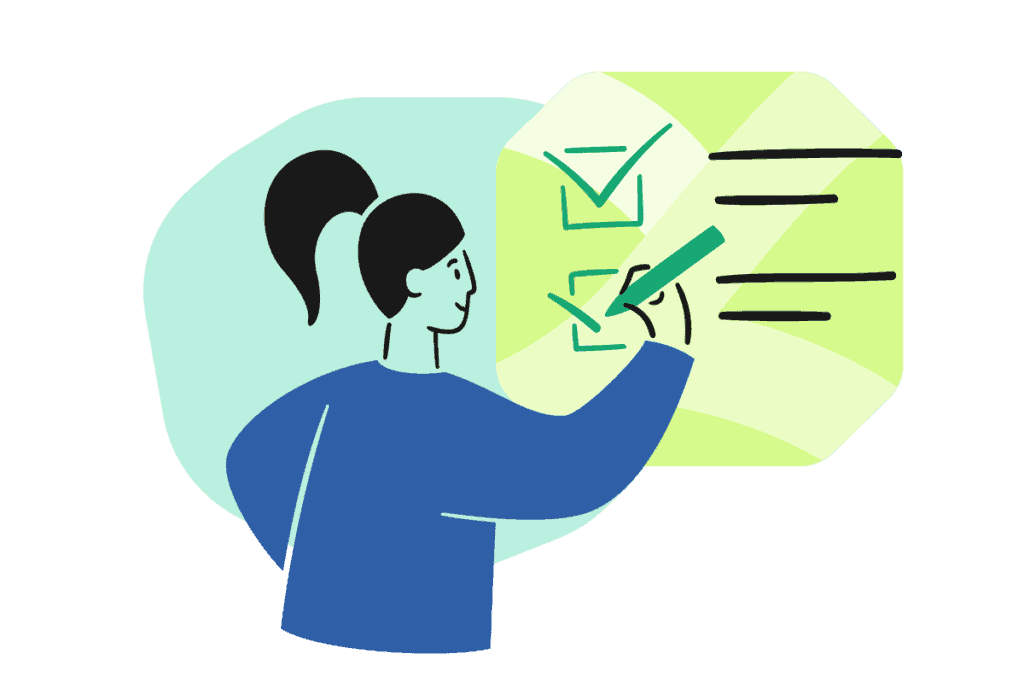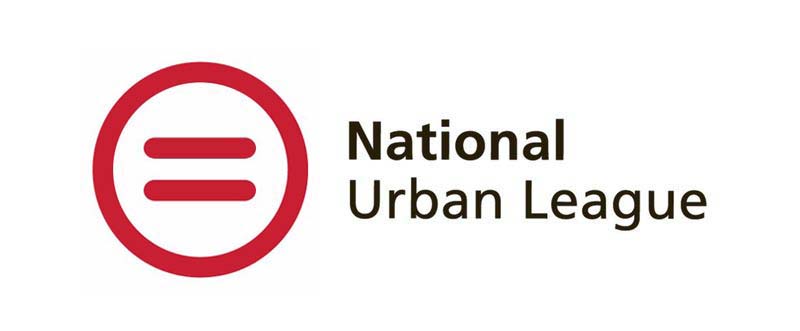Phone interview questions are an opportunity for recruiters or hiring managers to get to know you and your resume better before scheduling more in-depth meetings. A phone interview also lets you get to know the company a little better.These interviews are a common first step in the hiring process, and nailing one can drastically improve your chances of success.
While phone screen interview questions may seem challenging at first, being prepared and knowing what to expect can help ease your nerves and set you apart from the other candidates.
Common Phone Interview Questions
1. Tell Me About Yourself.
Interviewers typically start the call by getting to know you — asking you to talk about yourself is an easy way for them to learn more about you and your background.
Since phone interviews only last around 15 to 30 minutes on average, having a quick “about me” blurb prepared is vital. Practice your answer with a friend or keep notes on hand to make sure you don’t forget any crucial details.
Some similar questions include:
- Describe yourself.
- Walk me through your resume.
- How would your former employer describe you?
>>MORE: Explore in-depth how to answer “tell me about yourself” in interviews.
2. Tell Me About Your Current Job and Relevant Experience.
Once the interviewer has a better idea of who you are, they’ll want to dig into your current position and relevant work experience. This is your opportunity to showcase your experience. Keep it concise and remember to point out your professional accomplishments to bolster your responses.
Similar questions an interviewer may ask include:
- Describe your current role or position.
- What does a typical day in your current job look like?
- What is something you are proud of in your current job?
- What are some things you’ve accomplished in your current role?

National Urban League Career Readiness
Develop the right set of skills to succeed as you begin the journey toward a career with this free job simulation from the National Urban League.
Avg. Time: 6 to 7 hours
Skills you’ll build: Speaking, pitching, communications, research, planning, networking, writing, communication, resume writing, researching, interviewing
3. Tell Me What You Know About Us.
Companies want to hire people who are excited to work for them, so recruiters and interviewers often ask what you know about the role and business to gauge your interest. Expect some follow-up questions about how you found out about the job, too, as these questions give them insights into the efficacy of their recruitment processes.
Similar questions you could hear include:
- How did you find this role?
- What do you know about this company?
- Tell me what you know about this role.
- What are some preconceived notions you have about the position?
Crush the interview
Learn about companies first-hand before you apply so you can speak confidently in interviews.
4. Why Do You Want to Work For Us, Specifically?
Questions about why you want to work for a company help the employer understand why you’re looking for a new job, how interested you are in the company, and why you think the company or position is a good fit for you.
“While you can certainly talk about your skills and qualifications for the role, I would lean towards talking about why you want to work for the company in terms of the day-to-day,” says Jeremy Yamaguchi, CEO of Lawn Love. “You can talk about things like how you think you would flourish in the environment, how you like the team dynamic, how you want to work for a company with the same pace/drive as them, etc.”
Yamaguchi notes that focusing on how the company is a good lifestyle or workplace fit for you can help you stand out. “Companies want to hire people who will fit in well with the team and the overall workplace design.”
Similar questions interviewers often ask include:
- Why are you leaving your current role?
- Why are you looking for new opportunities?
- What are you looking for in your next role?
- Why are you applying for his position?
- Why are you interested in this position or this company?
- What compelled you to apply for this position?
- Why do you want this job?
>>MORE: Learn what to say (and what not to say) if an interviewer asks why you’re leaving your current job.
5. Why Are You the Right Fit?
Interviewers want to know why you applied to work for their company, but they also want your take on why they should hire you.
Linn Atiyeh, CEO and founder of Bemana, recommends you “…bolster your answer with real life examples to show the interviewer you mean business. It’s not enough to say you’re forward-thinking or a natural leader; what have you done in the past that exemplifies your abilities?”
Focus your answers around concrete examples and try to tie in language from the job posting to create a clear picture of why you’re the right choice for the role.
Other questions interviewers may ask about why they should hire you include:
- Why should we hire you?
- What would you bring to the team?
- How can you help the company accomplish its goals?
- Why would you succeed in this position?
- Why are you qualified for this position?
6. Tell Me About a Time When You…
Situational or scenario-based questions help employers understand your work style and how you handle difficult situations. Many scenario-based questions can feel overwhelming, but preparing with key responses to common questions can help you respond confidently.
Commonly asked situational questions include:
- Let’s say you are faced with a challenge. What would you do? This could be a difficult customer, a manager you disagree with, an overwhelming schedule, etc.
- Tell me about a time when you went above and beyond what was expected.
- Tell me about a time when you dealt with a demanding customer.
- Tell me about a time when you had a disagreement with a coworker or manager.
- Tell me about a time when you had competing priorities.
- Tell me about a time when you failed at a work task.
- Tell me about when you saw a problem at work and how you fixed it.

Forage Find
Use the STAR method to structure your answers and keep them concise! STAR stands for situation, task, action, result. Start with a situation you faced, the task you needed to complete, the actions you took, and the results.
7. Job-Specific Questions.
Before moving forward in the process, your interviewer wants to know how experienced you are with technical and job-specific programs, tools, software, or situations.
For instance, in interviews for guest relations positions, interviewers want to know how many years of experience you have in customer service or customer-facing roles. Be honest and take this opportunity to highlight any extra knowledge you have from outside the workplace. If you’ve taken relevant courses or had internships that gave you unique and relevant experiences, remember to mention them!
>>MORE: Learn how to answer common technical interview questions.
8. Personality-Based Questions.
Even if you have all the skills for a job, companies want employees who will fit in with their work culture. Personality questions help the interviewer understand what type of person and worker you are.
These types of questions include:
- What type of management style do you work best with?
- What does your ideal manager look like?
- Where do you see yourself in five years?
- What motivates you?
- What are you passionate about?
- What are your strengths?
- What are some of your weaknesses?
- Describe the workplace culture you work best in.
- Do you prefer working as a team or individually?
- What role do you typically play in a team environment?
>>MORE: Check out some commonly asked behavioral questions.
9. If You’re Hired…?
Some phone screen interview questions concern logistics that can impact whether you move forward in the process. These questions may be about salary expectations, whether you’re open to relocation, your earliest start date, and any upcoming responsibilities that would impact your job.
For salary expectations, you can say you don’t know, but it helps to do some research and determine typical salaries for similar roles in your area. With potential start dates and relocation, your best bet is to be honest. If the employer wants someone willing to move to a new state, but you know you don’t want that, it’s better if you make that clear upfront.
Job Interview Questions and Answers
Learn how to answer commonly asked questions and download a PDF to keep handy for your next interview.
Questions to Ask During a Phone Interview
Phone interviews are an excellent time to ask the interviewer questions. By asking questions during a phone interview, you can begin to determine if the company would be a good fit for you. Additionally, asking questions shows you’re interested in the position and company and can make you a more memorable candidate.
One great question to ask is about the types of challenges or tasks you’d be expected to handle in the position. Dr. Tasia White, high-performance coach and founder of Vonni Coaching & Consulting, LLC says, “This question shows that the interviewee has a vested interest in the position. It also gives them the perfect opportunity to share the skills they would use to address tasks/challenges, or highlight experiences the interviewee has dealing with those specific tasks/challenges.”
Other questions to ask in a phone interview include:
- What does a typical day in this role look like?
- How is performance measured in your company?
- What tools or programs are commonly used in this position?
- What are the expected working hours for this role?
- What is the company culture like here?
- What are the growth opportunities within the organization?
- What do employees say they like best about working here?
- What types of people are most successful in this company?
- What are the next steps in this process?
- When can I expect to hear back from you?
>>MORE: Learn what career is right for you with our free quiz!
Tips for Answering Phone Screen Interview Questions
Do Research Beforehand
Knowing details about the company can help you come across more knowledgeable and interested in the position. That excitement for and knowledge of your potential future employer could be a major boost to your application.
Be Professional in Your Answers
Melissa Hirsch, principal recruiter at Betts, warns, “While this seems to be obvious, sometimes candidates will get a little too comfortable with their interviewer. Just because your interviewer might be laid back doesn’t mean you can be. Sometimes it’s a trap to see if you can maintain your professionalism.”
Speak Clearly and Concisely
Atiyeh points out, “While articulation is always important, it’s amplified when you’re not face-to-face. If you suspect the interviewer isn’t grasping what you’re saying, feel free to ask if they’d like you to elaborate.”
Don’t Sound Too Scripted
While you want to come off as confident and knowledgeable, this is the company’s first impression of you and your personality. Keep things professional and concise, but don’t be afraid to let your personality shine through your responses.
Make Sure You’re in a Quiet Space
Outside distractions impact your ability to focus and make it harder for the interviewer to actively listen to your responses. Avoid rooms with other people around, background music, and any sort of loud machine noises from things like air conditioning units or outside construction.
Get Comfortable
It’s normal to be nervous, but finding a way to be comfortable while answering the questions can help you come off naturally. Even reminding yourself to smile during your responses can give your answers a friendlier and more relaxed tone!
Be Open About Issues You May Have During the Call
“If there is an emergency and the candidate is waiting on a call, tell the interviewer. Apologize up front that you’re anticipating an emergency call and ask if they would like to reschedule. Most likely, they’ll say they ‘no’ but at least they know what’s going on,” says Antonia Calzetti, talent acquisition leader at Steven Winter Associates.

Forage Resume Writing Masterclass
Build a resume employers can't ignore with this free masterclass from Forage.
Avg. Time: 5 to 6 hours
Skills you’ll build: Resume writing, professional brand, identifying job titles, professional narrative, transferable skills, industry keywords, illustrating your impact in teams
Ace the Phone Screen Interview
When answering phone interview questions, tailor your responses to your unique assets and experiences while being honest, confident, and professional.
Ready to ace your next phone interview? One key factor to landing your dream job is having the right skills to match the position. Start building your skills with Forage’s free job simulations.
And for more guidance on the job application process, explore our Job Application Basics series below. This five-part series will show you how to increase your chances of getting hired. Start with the intro, then check out all five parts:
Image credit: EdZbarzhyvetsky / Depositphotos.com

